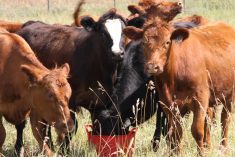When rural Ontario Conservative MP Larry Miller rose in the House of Commons Oct. 6, to present a petition calling on Ottawa to settle a BSE class action suit, he had no idea it was being hailed as a breakthrough.
“Larry Miller, member for Owen Sound, Ont., and chair of the PC rural caucus (sic), will be reading BSE class action petition in the House tomorrow,” Toronto lawyer Cameron Pallett e-mailed Oct. 5. “Whether that means it will be heard and debated remains to be seen.”
Read Also

Organic farmers urged to make better use of trade deals
Organic growers should be singing CUSMA’s praises, according to the Canadian Chamber of Commerce.
In fact, petitions are routinely presented, never debated and rarely read, although the government must respond eventually.
Miller said in an interview Oct. 7 that presenting the petition was his duty as an MP.
“I present petitions all the time, whether I agree with them or not, because that is my constituents’ direct communication to Parliament,” he said. “I tabled it because it was from people in my riding. I cannot comment on the lawsuit itself, one way or the other.”
He said he was surprised at media interest in this petition until he was told that the lawyer was promoting it as an advance for the attempt to have the lawsuit go to a mediated settlement.
“I’m disappointed some lawyer in Toronto has been trying to make hay of this when I was just doing my duty as an MP,” he said. “I guess it reinforces my view of lawyers but I won’t say any more on that.”
In the Commons, Miller said: “The petition calls on the government of Canada to appoint a mediator to facilitate the settlement between the Government of Canada and the cattle farmers in Canada in relation to the BSE crisis of 2003.”
Under parliamentary rules, he is not allowed to say whether he supports the petition or not.
Earlier, New Democrat Alex Atamanenko tabled a separate petition from Manitoba cattle producers. He noted that the class action suit is based on the premise that Agriculture Canada was negligent by allowing British cattle imports that brought BSE to Canada.
The class action suit was launched in 2005 but has yet to go to court. It is asking for compensation for producers who lost money after BSE was discovered in an Alberta cow in May 2003.














